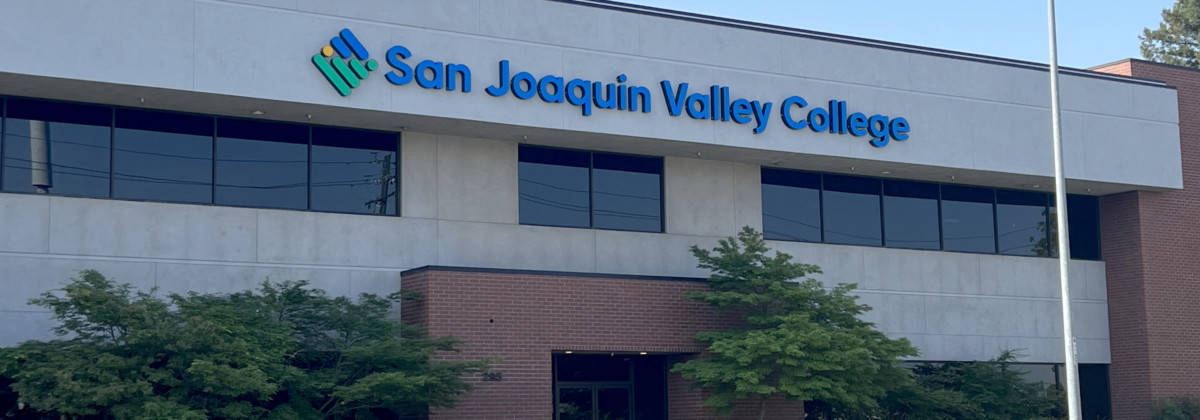Available Programs
Request Information
Medical & Dental Programs
Clinical Medical Assisting
The Clinical Medical Assisting program at SJVC’s Fresno campus is designed to provide education and career training for those interested in becoming medical assistants. From updating medical records to measuring vital signs, medical assistants are important to day-to-day operations in the healthcare industry.
Advance your career by earning a Certificate of Completion in as few as nine months. After finishing the program, graduates are eligible to sit for the National Certified Medical Assistant (NCMA) exam.
SJVC prepares students to take appropriate certification and licensure exams related to their individual majors. The College does not guarantee students will successfully pass these exams or be certified or licensed as a result of completing the program.
Learn more about how to become a medical assistant.
View Program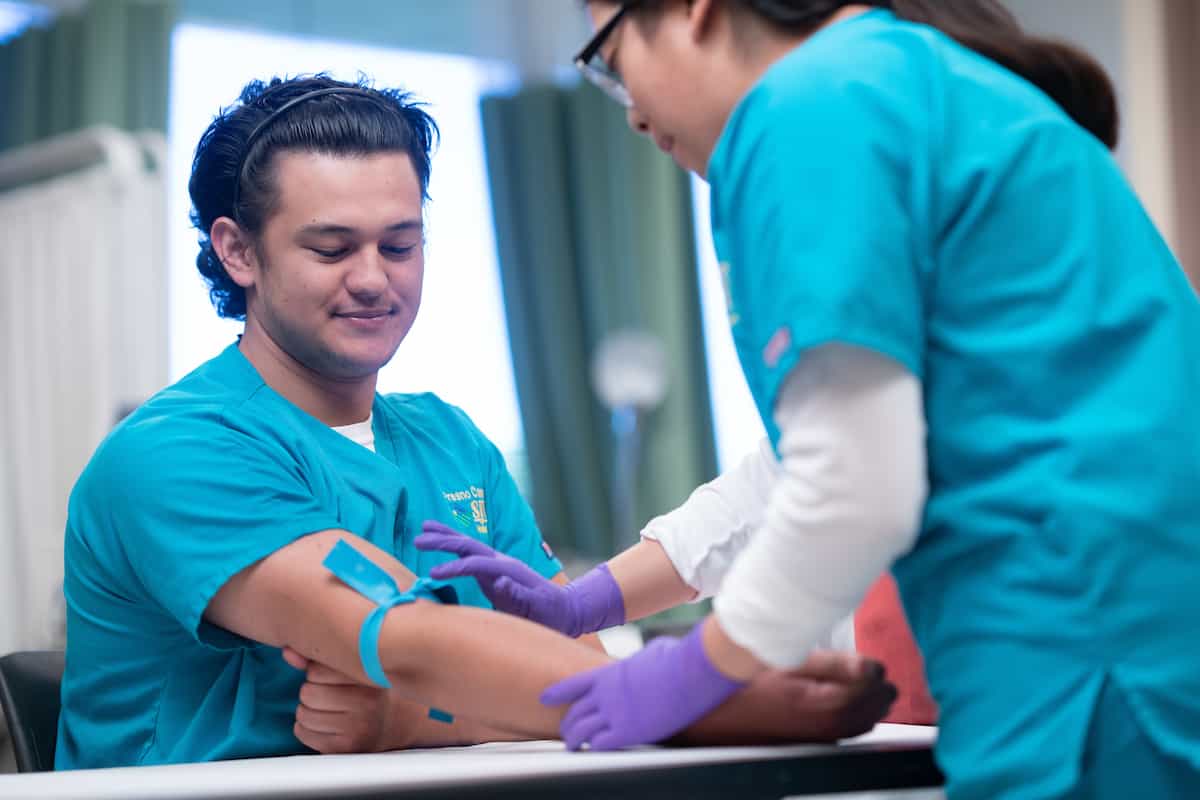
Dental Assisting
San Joaquin Valley College’s Dental Assisting program in Fresno trains students to work collaboratively in a dental setting. Dental assistants work under the supervision of dentists and dental hygienists to perform a variety of tasks. After completing the Dental Assistant program at SJVC, you’ll learn how to:
- Effectively practice dental management
- Implement preventive dentistry procedures
- Use dental practice software and applications
- Use dental anatomy and radiology in real-world settings
Start your career in dental assisting and earn a certificate of completion in as little as eleven months. Graduates are eligible to take the Dental Board of California Examination for state licensure. SJVC prepares students to take appropriate certification and licensure exams related to their individual majors. The College does not guarantee students will successfully pass these exams or be certified or licensed as a result of completing the program.
View Program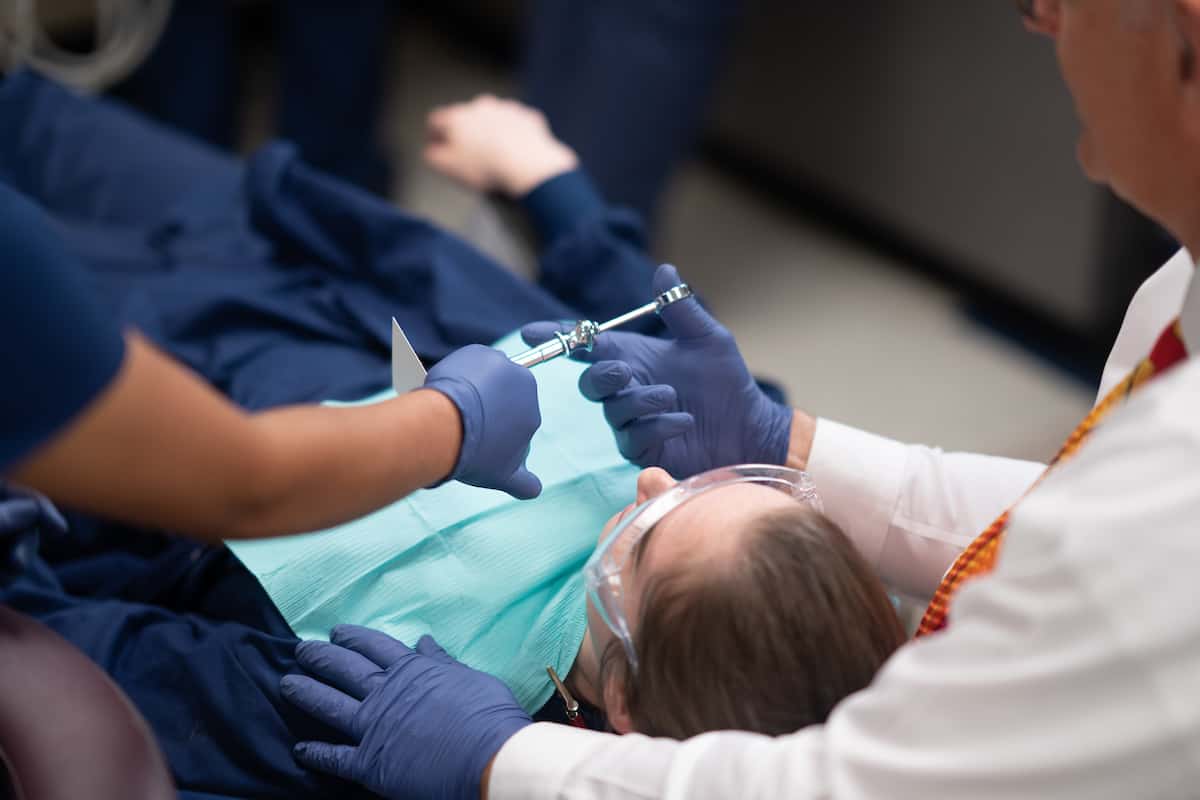
Pharmacy Technology
With the San Joaquin Valley College Pharmacy Technology program in Fresno, you can accelerate your career by working with pharmacists in a hospital or retail setting. As a student at SJVC, you’ll get a chance to learn essential skills in Pharmacy Technology, such as:
- Computer data entry
- Inventory management
- Prescriptions processing
- Pharmacy law and ethics
Ready to start preparing for your career as a Pharmacy Technician? Enroll now, and you could finish in as little as nine months.
Graduates are eligible to apply for licensure with the California State Board of Pharmacy. Students qualify to take the Pharmacy Technician Certification Exam (PTCE) upon successful completion of practice exams administered during their course of study and with the approval of the Pharmacy Liaison.
SJVC prepares students to take appropriate certification and licensure exams related to their individual majors. The College does not guarantee students will successfully pass these exams or be certified or licensed as a result of completing the program.
View Program
Veterinary Assistant
SJVC’s Veterinary Assistant program in Fresno gives students a chance to develop professional skills as well as learn front-office procedures, animal nursing, laboratory testing, diagnostic imaging, and surgical procedures. Get your Certificate of Completion in as little as nine months.
Graduates can apply for licensure by meeting all of the Veterinary Medical Board Alternate Route requirements, including completion of 4,416 hours of practical experience under the direct supervision of a California licensed veterinarian.
SJVC prepares students to take appropriate certification and licensure exams related to their individual majors. The College does not guarantee students will successfully pass these exams or be certified or licensed as a result of completing the program.
Read on to learn more about how to become a veterinary assistant.
View Program
Medical Office Administration
If you’re an organized, team-oriented person who enjoys interacting with others, Medical Office Administration could be the right career path for you. Students at SJVC’s Medical Office Administration program learn a wide range of technical skills, like:
- Front-end patient care
- Appointment scheduling
- Office management procedures
- Medical billing and insurance claim processing
Our Medical Office Administration program in Fresno can also be completed in as few as nine months. To get started, submit a request form, and one of our admissions representatives will reach out with more information.
View Program
Surgical Technology
Surgical technologists support surgeons, nurses, and other members of the health care team in delivering surgical care. Their role is critical in the medical field because they ensure a clean, organized work environment during operation.
The Surgical Technology program at SJVC’s Fresno campus includes hands-on training and eligibility to sit for the Certified Surgical Technologist (CST) National Certification Exam after completion. Start preparing for your career today and earn an Associate of Science degree in as little as fifteen months!
As a Surgical Technologist student at SJVC, you’ll learn:
- Pre, intra, and post-operative care
- How to create and maintain a sterile field
- How to safely handle and care for specimens
- Basic assembly of surgical instruments and equipment
SJVC prepares students to take appropriate certification and licensure exams related to their individual majors. The College does not guarantee students will successfully pass these exams or be certified or licensed as a result of completing the program.
View Program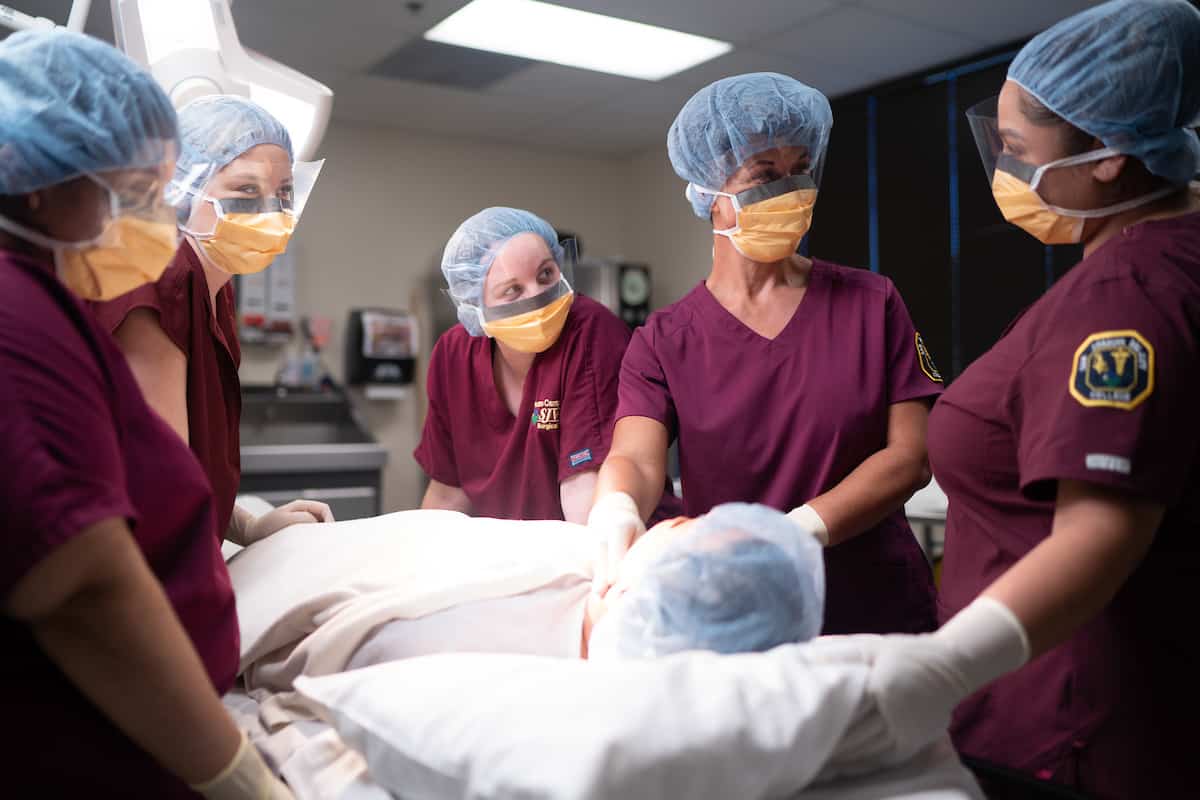
Business Programs
Business Office Administration
On the job, business administrators can be found organizing files, arranging travel for executives, performing bookkeeping, or processing payroll. Their job requires a wide range of duties and responsibilities around the office, making it a great career choice for those interested in multidisciplinary fields.
The Business Office Administration program in Fresno is designed to provide graduates with necessary skills that can transfer across the industry. You can learn technical skills, like basic bookkeeping, computer applications, and effective communication, from expert staff. And in as little as eight months, you can earn your Certificate of Completion.
Start the path to your new career with SJVC career training!
View Program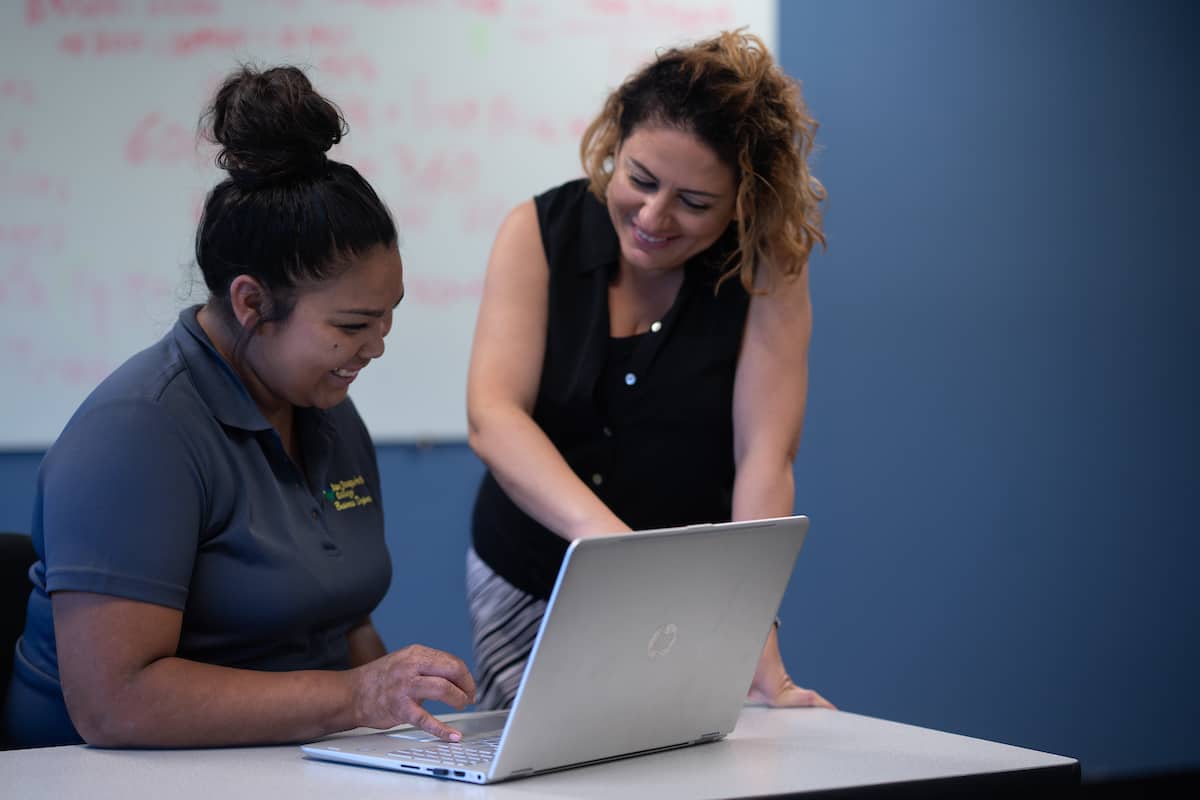
Can't Find Your Program?
View All ProgramsCareer Training in Fresno
SJVC’s Fresno college campus offers hands-on career training to students in Central California. Class schedules are flexible to work with your busy life and class sizes are manageable, so you can get individualized attention. We focus on career training and education and have a dedicated Career Services staff that is focused on helping students find career opportunities when they graduate. SJVC’s Fresno campus is committed to the personal, academic and professional success of all its students. Our campus provides opportunities to develop critical thinking, career skills, and professionalism all in an excellent classroom setting that is designed to mimic real-life scenarios. Our programs incorporate hands-on assignments and projects which are vital for vocational-based learning. Our faculty are experienced teachers who know how to engage students within individualized, personal instruction.
Transportation
The SJVC Fresno campus is conveniently located close to the 41, making it easy for students in neighboring communities to get to class. If you’re looking for public transportation, the 32bus stops on nearby Fresno St. and Sierra Ave.
Student Life at SJVC Fresno
SJVC prepares you for a career in less time than it takes to pursue a traditional four-year degree, but you don’t have to give up on student life and enrichment. Our Fresno college campus has a history of partnering with local organizations to support the community. As a new student, you’ll quickly learn that SJVCFresno is not a college campus where you feel like another face in the crowd. Our small class sizes and commitment to providing students with one-on-one attention support the family-like atmosphere at this Central California campus.
Get Ready for Your Career at SJVC Fresno
Request information today and you will hear from SJVC Fresno shortly. We know it’s challenging to choose the right career college for you. Our advisor will answer your questions, help determine what program suits you best and work with you to determine if our Fresno college will be a good fit.

As mentioned in our Core Values, as Campus President I aim to foster a culture of communication, integrity, professionalism, diversity, family, and success. My goal as a leader to be an example and inspire the team and SJVC students to fulfill their greatest potential.
